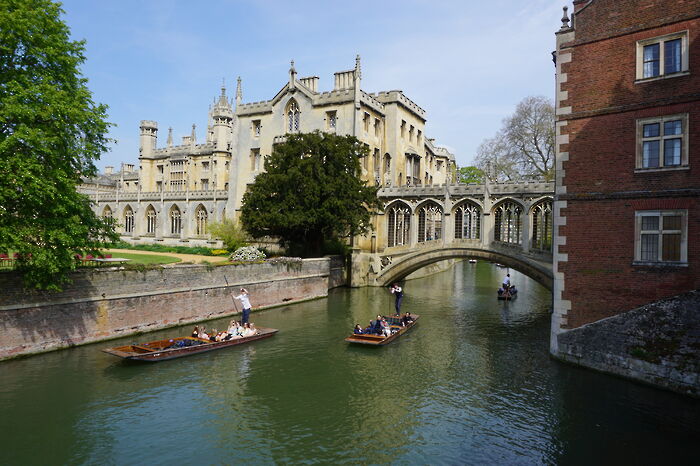Cambridge’s education system has failed: it’s time for change
In his final column, Angus Satow imagines a revolutionised education system in Cambridge, without expectations or exams

Cambridge’s education system is buckling. The decolonisation movement is exposing the limits of learning at Cambridge and how the control of knowledge has played a key role in the maintenance of white supremacy. Students of colour are demanding change; the University is being forced to respond.
Meanwhile, the first disabled students’ officers have spearheaded a push for more inclusive forms of learning. Cambridge’s absurd system of enormous workloads topped off with a one-size-fits-all three-hour exam is falling away. Coursework is on the rise as the scale of our mental health crisis becomes clear. The Queens’ email scandal is symptomatic of a broader system breeding feelings of worthlessness.
The narrowness of our courses is also increasingly being questioned. Why can’t we combine subjects? Why can’t more students go abroad, a standard experience elsewhere in the country and the continent? Cambridge, it is clear, needs to change.
“Ultimately, we can only truly transform Cambridge when it is we who have the power”
But, as evidenced by the class lists referendum, many are attached to this regime of gruel and suffering. “We work harder, so we’re cleverer and worthier than other people,” is the ugly reasoning beneath the Cambridge surface.
It’s not true, obviously. Does writing four essays in a week, as HSPS students do, really facilitate a nuanced understanding of political theory? No. As the catastrophic failures of the British elite have shown, Oxbridge does not educate well.
What this place gives us is an excellent ability to superficially administrate the world ‘waiting’ for us. We can summarise well and regurgitate well.
A revolutionised Cambridge system should have as its basis a radical decentring and commitment to justice, such that everyone can learn according to their needs, and what they learn can be socially useful.
We should start by abolishing Tripos. Students should be freer to take breaks in their studies, to go abroad even if they don’t study languages. Grades should be abolished – they are often more an indicator of privilege than the result of any genuine meritocracy. For students who need some sort of qualification – as in medicine – a guild system could be established.
Students could study across faculties, build their own curricula, and work in whatever way best suits them. Group work would be valorised. As both students and teachers we could redefine the boundaries of knowledge.
This column began with a commitment to extend the University’s ‘questioning spirit’ to Cambridge itself. This is a necessary project. In Jacques Derrida’s University without Condition, the French philosopher argued for “an unconditional freedom to question and propose”, and insisted this be extended to the very concept of critique.
There are, however, some who disagree. Varsity recently ran two pieces criticising both this column and myself respectively. There is one common element worth dwelling on. The headline of Theo Demolder’s piece is ‘Let’s change this institution for the better, rather than rip it apart’. Connor MacDonald expands on this anti-radical thread in his article (both writers are conservatives). Activists would do better to campaign on accommodation conditions rather than organise for liberation, he suggests, leaving out the awkward fact that the Cambridge, Cut the Rent campaign is being led by left-wingers such as myself.
The point here is not these men’s erasure of those marginalised people actually doing the work to improve this institution. Rather, it is their vendetta against thinking big. Behind the mockery of ‘structural’ discourse is an investment in the status quo. For if we don’t recognise social oppression and inequality as systemic issues, then there is no need for any serious changes. The translation of ‘stick to the real issues’ is ‘know your place’.
As we have seen, Cambridge thrives off this strict assignation of unequal roles. It will not suffice to merely tinker with them. Ultimately, we need to dismantle and rebuild.
This radical change will only come with a major shift in ownership of the University. Ultimately, we can only truly transform Cambridge when it is we who have the power. A liberated university must above all mean a democratised university
 Comment / Plastic pubs: the problem with Cambridge alehouses 5 January 2026
Comment / Plastic pubs: the problem with Cambridge alehouses 5 January 2026 News / Cambridge businesses concerned infrastructure delays will hurt growth5 January 2026
News / Cambridge businesses concerned infrastructure delays will hurt growth5 January 2026 News / New movement ‘Cambridge is Chopped’ launched to fight against hate crime7 January 2026
News / New movement ‘Cambridge is Chopped’ launched to fight against hate crime7 January 2026 News / Uni-linked firms rank among Cambridgeshire’s largest7 January 2026
News / Uni-linked firms rank among Cambridgeshire’s largest7 January 2026 News / AstraZeneca sues for £32 million over faulty construction at Cambridge Campus31 December 2025
News / AstraZeneca sues for £32 million over faulty construction at Cambridge Campus31 December 2025









